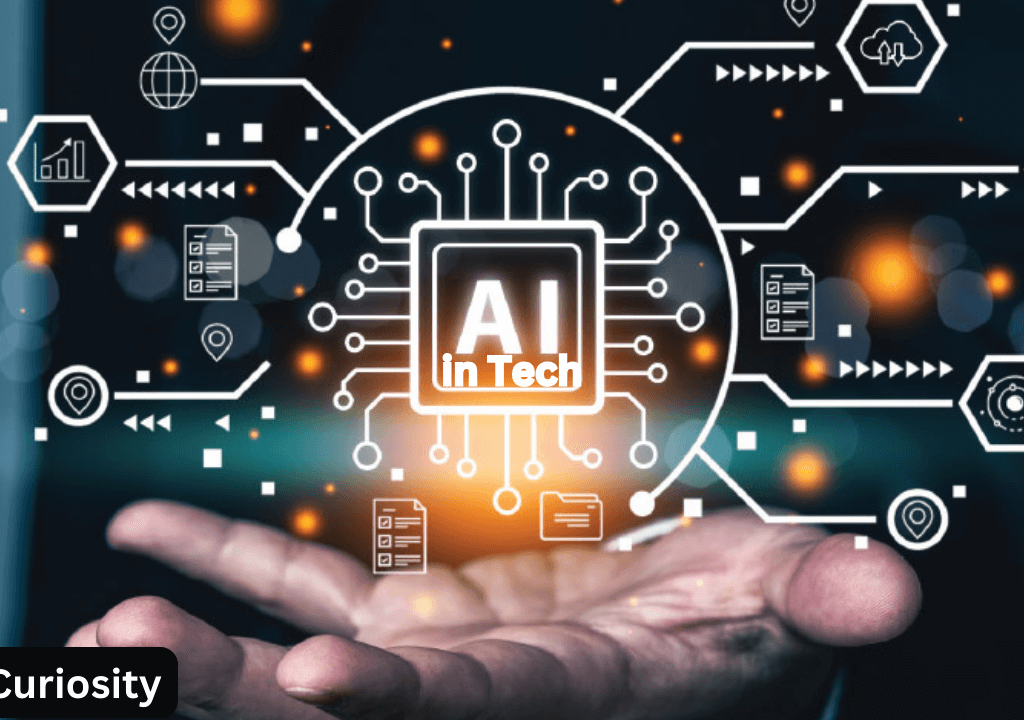AI in the world is reshaping industries, revolutionizing how we live, work, and interact with technology. The pace of technological advancement is relentless, and artificial intelligence (AI) stands at the forefront of this revolution. AI in tech is rapidly transforming industries, reshaping how we work, live, and interact with the world around us. From automating complex tasks to unlocking groundbreaking scientific discoveries, AI is poised to redefine the future of innovation.
A Glimpse into the World of AI
But what exactly is AI in tech? In its simplest form, AI refers to the development of intelligent systems that can mimic human cognitive functions such as learning, problem-solving, and decision-making. These systems are powered by sophisticated algorithms that process vast amounts of data, enabling them to identify patterns, make predictions, and adapt to new information.
The capabilities of AI in tech are constantly evolving. Here are some of the latest AI technology advancements making waves across various sectors:
- Machine Learning: This branch of AI allows systems to learn from data without explicit programming. Machine learning algorithms can analyze vast datasets to identify patterns and relationships, enabling them to make predictions and improve their performance over time.
- Deep Learning: A subset of machine learning, deep learning employs artificial neural networks inspired by the human brain. These complex networks can process large amounts of unstructured data like images, text, and audio, making them ideal for applications like facial recognition, natural language processing, and image classification.
- Natural Language Processing (NLP): NLP allows AI systems to understand and generate human language. This new AI technology powers applications like chatbots, virtual assistants, and machine translation, enabling seamless communication between humans and machines.
- Computer Vision: This field of AI focuses on enabling computers to interpret and understand visual information. Computer vision algorithms can analyze images and videos to identify objects, track movement, and recognize faces, paving the way for applications in self-driving cars, security systems, and medical diagnostics.
Are you ready to explore the possibilities of AI in tech? At Wiki Curiosity, we’re passionate about leveraging latest AI technology to help businesses thrive.
AI in Tech: A Force for Positive Change
The potential applications of AI in tech are vast and far-reaching. Here are a few examples of how AI is transforming various industries:
- Healthcare: AI is revolutionizing healthcare by aiding in disease diagnosis, drug discovery, and personalized medicine. AI-powered systems can analyze medical images to detect abnormalities, predict patient outcomes, and develop personalized treatment plans.
- Manufacturing: AI is streamlining manufacturing processes by automating repetitive tasks, optimizing production lines, and predicting equipment failures. This not only improves efficiency but also reduces costs and ensures product quality.
- Finance: AI is transforming the financial sector by automating fraud detection, credit risk assessment, and algorithmic trading. AI-powered systems can analyze vast amounts of financial data to identify trends, predict market movements, and make informed investment decisions.
- Customer Service: AI chatbots are changing the way companies interact with customers. These virtual assistants can answer customer queries, provide troubleshooting support, and personalize the customer experience 24/7.
- Transportation: The development of self-driving cars is a prime example of AI in tech innovation. Self-driving vehicles use a combination of sensors, cameras, and AI algorithms to navigate roads safely and efficiently, potentially revolutionizing transportation and improving road safety.
AI Technology in the Future
As AI in tech continues to evolve, its impact on our lives will become even more profound. Here are some potential ways AI may shape the future of innovation:
- Personalized Experiences: AI algorithms can personalize experiences across various aspects of life. Imagine educational programs tailored to individual learning styles, or recommendation systems that anticipate your needs before you even express them.
- Augmented Reality (AR) and Virtual Reality (VR): AI can enhance AR and VR experiences by creating more realistic and interactive environments. This opens doors for applications in education, training, and entertainment.
- Robotics: The integration of AI with robotics holds immense potential. AI-powered robots can perform complex tasks with greater precision and efficiency, potentially transforming industries like manufacturing, healthcare, and logistics.
- Scientific Discovery: AI can accelerate scientific discovery by analyzing vast amounts of scientific data and identifying patterns that might escape human researchers. This could lead to breakthroughs in fields like medicine, materials science, and space exploration.
Challenges and Considerations of AI in Tech
While the potential of AI in tech is undeniable, there are also challenges to consider:
- Ethical Concerns: The development and use of AI raise ethical questions about data privacy, bias in algorithms, and potential job displacement. It’s crucial to develop and implement ethical guidelines for the responsible development and use of AI technology.
- Transparency and Explainability: Many AI systems are complex and opaque, making it difficult to understand how they arrive at their decisions. Ensuring transparency and explainability in AI systems is essential for building trust on AI technology.
Conclusion
The future holds immense potential for AI in tech, promising advancements that will redefine our world. However, this journey requires a collaborative approach that balances innovation with responsible development. By harnessing the power of AI ethically and thoughtfully, we can unlock a future filled with groundbreaking discoveries, personalized experiences, and a more efficient and sustainable world.
